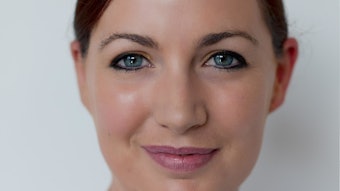According to a recent market report, as aging consumers work to maintain a healthy appearance, they are looking beyond skin and sun care to hair care. Anti-aging hair care addresses concerns such as thinning, coloring, breakage and drying, with emphasis on particular ingredients that target specific issues. Although trends in anti-aging hair care are currently focused in North America and Europe, hair care brands are seeing opportunities in other regions, including emerging markets. Consequently, beauty product developers, ingredient suppliers and brands large and small have been busy addressing the graying population in hopes of attracting the baby boomer marketplace.
For example, Cindy Angerhofer, Aveda’s executive director, said in the report, “The majority of women treating thinner hair are unsatisfied with their current regime and very interested in a natural alternative. ... This significant gap in treatment inspired Aveda to enter the anti-thinning hair category to provide [consumers] with high-performing, botanically derived solutions, and capitalize on a considerable growth opportunity of the brand.” She added, “Forty-six percent of women globally are concerned with thinning hair, yet only a quarter of them act on it.”
In relation, the Cosmetics & Toiletries Summit (June 26–27, 2014, at the University of Pennsylvania in Philadelphia) will feature an entire research track focused on considerations for this growing market. Crisan Popescu, PhD, German Wool Institute, will discuss chemical treatments to impart desirable shapes to hair while preserving as much of its physical and chemical properties as possible. Specifically, he will cover the use of cross-linkers and reactions with poly-functional compounds for introducing new bonds into the protein structure.
Mike Davis, Procter & Gamble, will examine hair health using proteomics to localize the damage to particular regions of the fiber (cuticle/cortex) beyond what the consumer can see. According to him, understanding how the hair shaft is damaged at the proteome level provides new insights into hair structure and the how protein changes impact the mechanical and cosmetic value of the hair shaft.
Rebecca Kazin, MD, a board certified dermatologist with the Washington Institute of Dermatologic Laser Surgery and assistant professor at the Johns Hopkins University School of Medicine, will cover facts specific to scalp skin, and how common hair care ingredients in shampoos/conditioners, styling products, dyes/relaxers, etc., impact this skin. She also will focus on how anti-aging in hair care translates into scalp care.
Finally, Gill Westgate, PhD, University of Bradford, will present the latest findings about hair follicle biology, delivering new hope for hair growth and growth inhibition. She also will provide examples of how this research is being translated into new products and claims.
Register now—space is limited. Hair not your category? Other research covers skin and sun. Research content too upstream for your role? Day two's hands-on workshops build formulating skills. Join us for this integrated experience.









